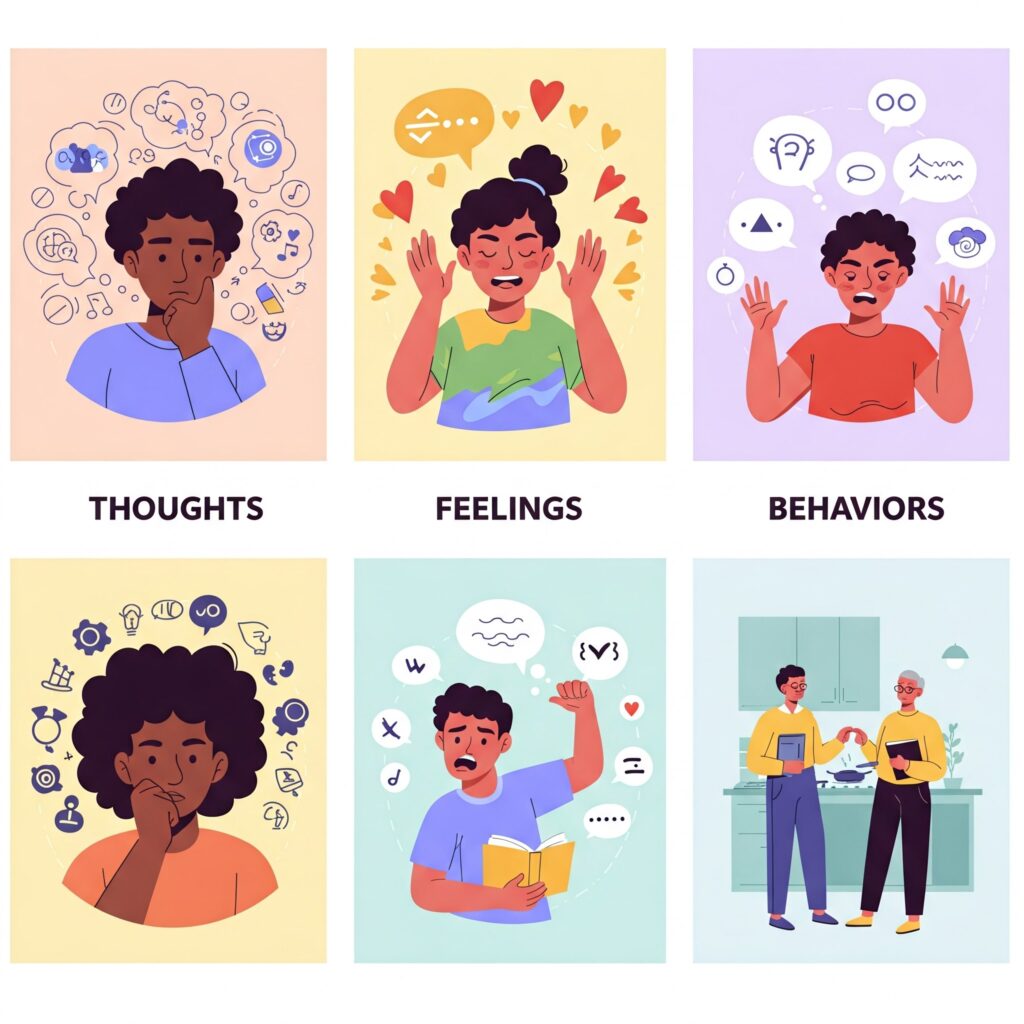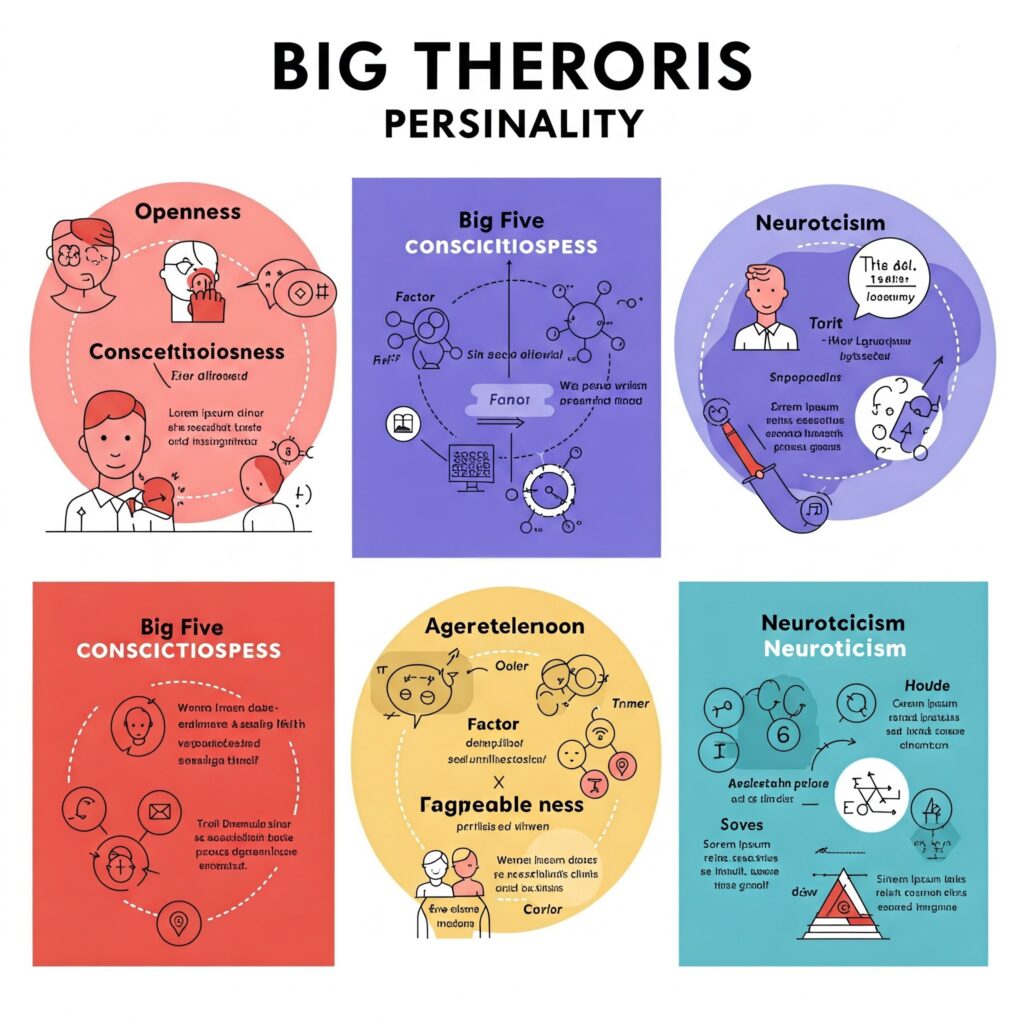What is personality?
The word “personality” is derived from the Latin word “persona,” which originally referred to a mask worn by actors in ancient Roman theatre. These masks helped distinguish different characters, making them recognizable to the audience. Over time, the meaning of “persona” evolved, and it came to represent an individual’s distinct identity and characteristics. The term “personality” originated to describe an individual’s distinct characteristics, behaviors, and manner of engaging with the world. It evolves and adapts based on our surrounding environment and the positive energy we encounter.

In today’s world, the word “personality” refers to how a person lives in society, behaves, interacts with others, and treats everyone equally without discriminating between rich and poor. It also means not judging people based on caste or religion. A person’s behaviour reflects their good or bad personality. Personality is very important for an individual, as it includes honesty, respectfulness, and living with love and harmony with others. This is what defines a true personality.
In psychology, personality is defined in a different way. It examines how a person’s personality works, which has been deeply studied. Through this research, it was discovered that theories such as Carl Jung’s theory, Sigmund Freud’s theory, and the Big Five Personality Traits are included in the study of personality.
What is theory of CARL JUNG’S?
In Carl Jung’s theory, he defined how the human mind understands itself based on the Introvert and Extrovert aspects. Carl Jung referred to this theory as Analytical Psychology.
There are two types of Carl Jung’s theory:
- Introvert personality
- Extrovert personality
- Introvert personality: An introvert is a person who does not want to step out into society, interact with people, sit with them, or talk to them. They always prefer to be alone and believe in being happy with what they already have. They are not interested in learning new skills or being aware of new technology. They do not care about what is happening in society; they simply prefer solitude.
- Extrovert personality: An extrovert is a person who does not want to confine themselves to society alone but desires to explore the world. They want to travel, generate new ideas, and improve new skills while gaining knowledge from different places. They do not like being restricted to one place; instead, they enjoy sitting, talking, and working with others. They love taking risks, trying unique things, and facing challenges. They prefer interacting with new people and collecting knowledge from various places.
In Sigmund Freud’s theory, he defined how the human mind understands itself based on the Conscious, Unconscious and Subconscious aspects. Carl Jung referred to this theory as Analytical Psychology.
What is theory of Sigmund Freud’s?
- Conscious
- Unconscious
- Subconscious
- Conscious: The conscious mind is the part where a person clearly knows what they can and can not do. They have full awareness of their mind and themselves.
For example: If some one asks a person whether they can drive a car or not, they will know for sure whether they can drive or not. This is what our Conscious mind. that is HOW DO WE UNDERSTAND THE PERSONALITY.
- Unconscious: The unconscious mind is the part of the mind where memories are not clearly retained. It focuses on past events that we may have forgotten, but after thinking for a while, some memories resurface. This type of mind is known as the unconscious mind.
For example, during an exam, when we forget the answer to a question, we try to recall it by thinking hard. Gradually, the information we studied starts coming back to us. This is an example of the unconscious mind.
- Subconscious: The subconscious mind is where our feelings, habits, and behaviours remain hidden, and we are unable to share them with others. These thoughts stay buried in our mind.
For example: when we dream at night, it feels completely real, but when we wake up in the morning, the dream fades from our mind, and we no longer remember it. This is what is known as the subconscious mind.
Three components of personality:
- Id
- Ego
- Super ego
- Id: The id is the unconscious part of the mind present from birth, containing our most basic instincts and desires. In early childhood, up to around 3–4 years of age, children operate primarily through the id, seeking immediate gratification without considering potential consequences, an infant demands instant satisfaction of hunger through breastfeeding, without awareness of any other factors.
For example: For example, during winter, if a child wants to eat ice cream, they desire it immediately without considering that it might be harmful. This is an example of the id in action.
- Ego: The ego begins to develop in children around the ages of 3 to 4 years. It functions as the conscious mind, acting as a referee or mediator. At this stage, the ability to discern right from wrong starts to emerge. The ego serves as the intermediary between the id and the superego. Before undertaking any action, a person considers what is right and wrong. This is a crucial aspect of our mind.
For example: if a child wants to eat ice cream during winter, their mind thinks, “I want it,” but also considers that it might be harmful. This internal conflict and decision-making process exemplify the function of the ego.
- Super ego: The superego is a component of the psyche that embodies internalized societal and parental standards of morality. It serves as a moral compass, guiding individuals to distinguish between right and wrong. The superego functions to suppress the urges of the id and strives to make the ego act upon moralistic goals rather than merely realistic ones.
For example: For example, during winter, if someone craves ice cream but decides against eating it to avoid getting sick, this decision reflects the influence of the superego. The superego is the ethical component of personality that provides the moral standards by which the ego operates.
Five big theories of personality:

O-Openness
C-Conscientiousness
E-Extroversion
A-Agreeableness
N-Neuroticism
- Openness: In the Openness refers to an individual’s inclination towards creativity, curiosity, and a preference for novelty and variety. People high in openness are imaginative, open-minded, and eager to explore new ideas and experiences. They enjoy generating new ideas and are often driven by a strong sense of curiosity.
- Conscientiousness: In the Conscientiousness refers to an individual’s ability to exercise self-control, remain organized, and focus on achieving their goals. People high in conscientiousness are diligent, disciplined, and mindful of their actions. They often prefer to plan ahead and are capable of managing multiple objectives simultaneously.
- Extroversion: An extroverted person often dreams big and desires to explore the outside world; they do not wish to remain confined like a frog in a well. They greatly enjoy conversing and meeting with others.
- Agreeableness: An individual with high agreeableness enjoys working collaboratively in groups, coordinating effectively with team members, and assisting others. Their pleasant nature makes them well-liked, and people appreciate being in their company.
- Neuroticism: An individual who consistently conceals their feelings and emotions, refrains from sharing personal burdens, and remains calm under pressure may exhibit traits associated with emotional suppression and high emotional intelligence. Such individuals often maintain composure in various situations, effectively manage stress, and prefer to handle challenges independently without seeking external support. Their calm demeanour and self-reliance are notable characteristics